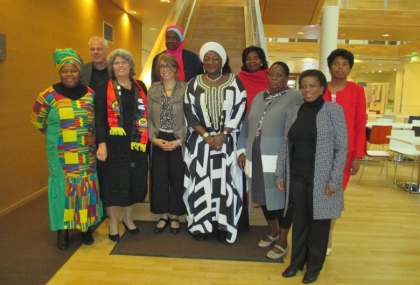
Municipalities are the level of government closest to people, and every municipality is unique. As such, there are many critical paths that can be followed to advance gender equality. It is at the local level that coherent policies and programs can be developed to address the multiple global challenges affecting all women and men. In many ways, local governments can be leaders and act as a model for gender equality and the empowerment of women to build stronger communities and a stronger world.
Join the CIB webinar on April 12 (15:00-16:15, CET) on ‘Advancing Gender Equality – New roles and new tools for local government’ to learn how three organizations are helping local governments step up to advance this important agenda.
Presentations
After a short presentation by the CIB Working Group co-chair Sebastien Hamel (Senior Director, FCM), Metropolis, the Catalan Agency for Development Cooperation and FCM will hold short presentations about the following subtopics:
- Metropolis: “Safety and public space: Mapping metropolitan policies with a gender perspective”
- Catalan Agency for Development Cooperation: “Gender and Human Rights at the center of the cooperation policy”
- Federation of Canadian Municipalities: “Building Inclusive Communities Through Economic Opportunities”
For more specific information on the three presentations, please see below.
Practicalities
The CIB webinar will be moderated by Pascal Lavoie from FCM. You are invited to comment on the presentations in the chat box – these will be picked up by the moderator and directed at the individual speakers.
The webinar is open to anyone interested, within and beyond the CIB member organizations. You can register for the event by following this link: https://fcmwebinars.webex.com/fcmwebinars/onstage/g.php?MTID=e790ac916a525909c31e73bfa167b3f89
__________________________________
Background information on the three presentations
From Metropolis:
Presenter: Ms. Kathryn Travers, Executive Director, Women in Cities International
Presentation: Safety and public space: Mapping metropolitan policies with a gender perspective
Description: Sexual harassment and other forms of sexual violence in the public space limit women and girls’ right to the city, a fundamental right enshrined in the SDG 11 and part of the 2030 Agenda. Metropolis is committed to work with its members to advance this agenda. The project "Safety and public space: Mapping metropolitan policies with a gender perspective" is a case in point. In partnership with Women in Cities International (WCI), the initiative supports the development of a metropolitan map to raise awareness of public policies to fight violence against women and girls in public space. The presentation will focus on examples from the ground to illustrate impact through data, tools and resources.
From Catalan Agency for Development Cooperation:
Presenter: Marta Casamort, Gender Officer, Catalan Agency for Development Cooperation
Presentation: Gender and Human Rights at the center of the cooperation policy
Description: The Development Cooperation Master Plan is an example of a public policy that focuses on gender and human rights based approach that materializes in prioritizing women’s human rights as a strategic objective of this policy. The praxis offers many lessons learned and challenges in the way to address the problems, the objective of the actions, the relationship with the actors involved, the methodologies and the instruments for implementation, monitoring and evaluation. All of this is contributing to a transformative cooperation towards more equal gender relations and the promotion of women’s human rights.
From Federation of Canadian Municipalities:
Presenter: Katherine Murillo, Project Manager, FCM’s Partnerships for Municipal Innovation
Presentation: Building Inclusive Communities Through Economic Opportunities
Description: Local governments can act as a model for gender equality and the empowerment of women through fair employment practices and policies to support inclusivity at the local level. Inclusive local economic development supports growth that generates decent jobs, gives opportunities for everyone in society (women & men), especially socially excluded groups, and distributes the income and non-income gains from prosperity more equally across society. For close to a decade, FCM has been implementing programming focused on economic development with an aim of improving gender equality. The presentation will focus on the tools and approaches developed by the projects in Eastern Europe, the Caribbean, Latin America and Africa.
